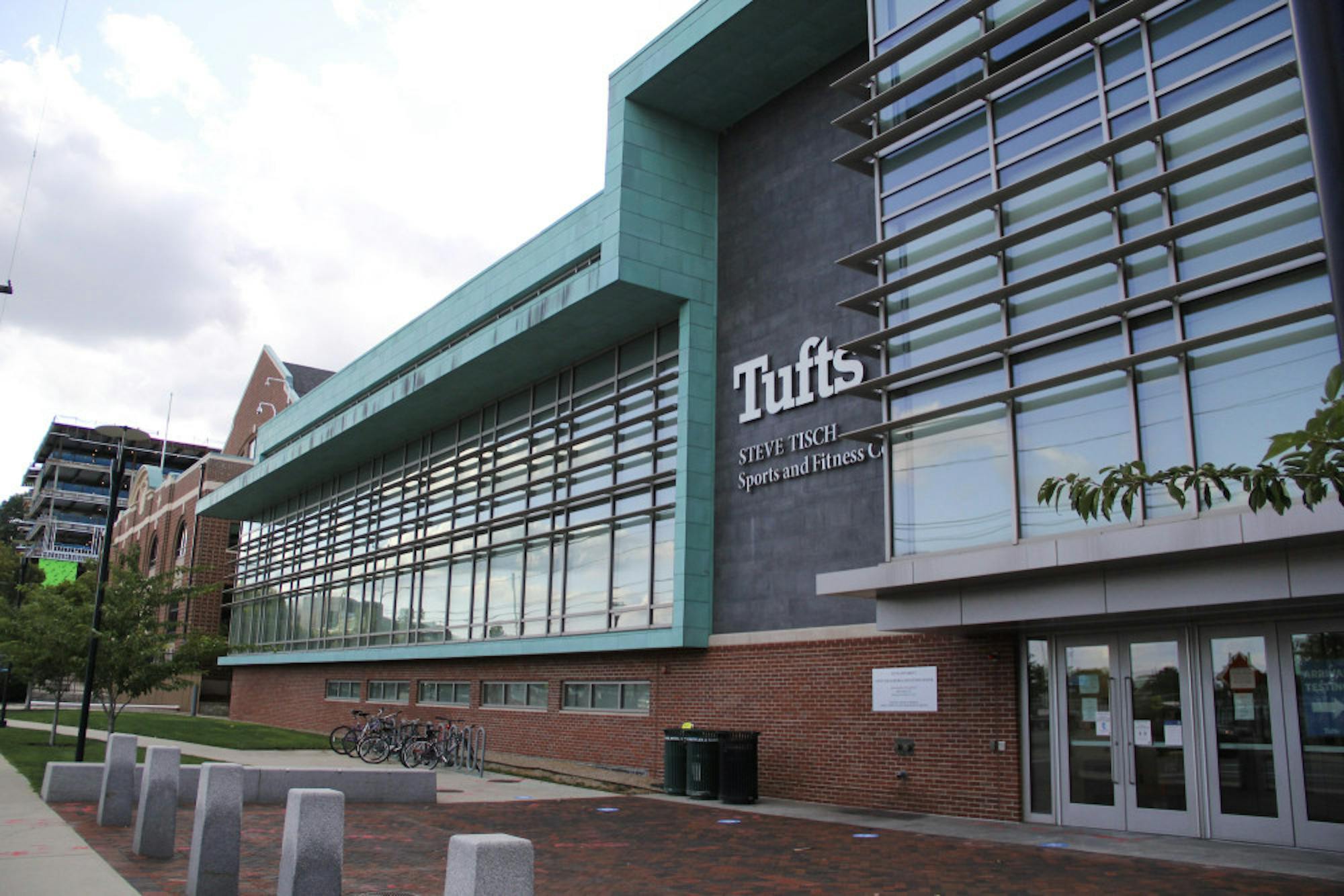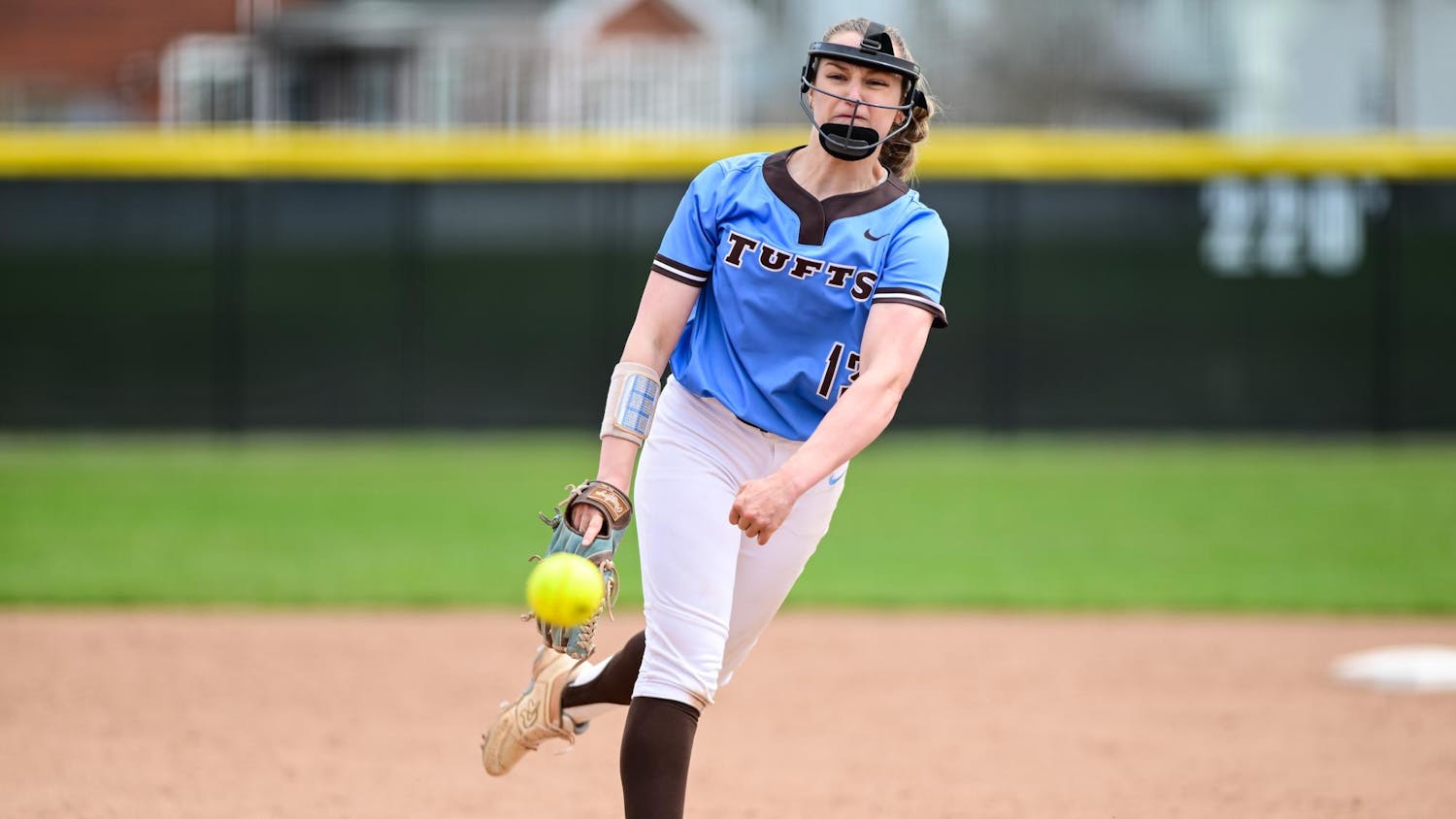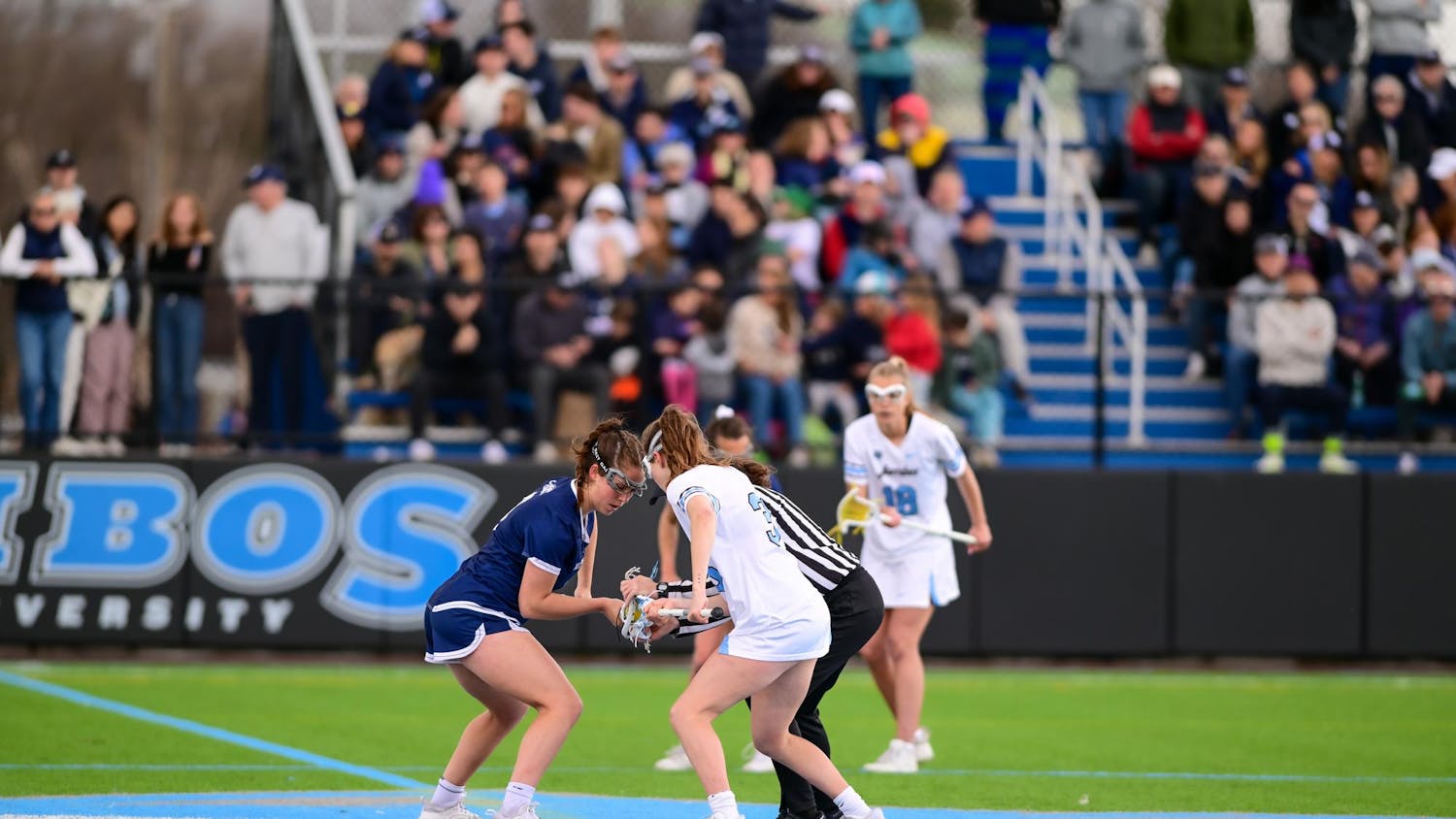Tufts’ athletic training staff is invaluable to the success and health of all Jumbo sports teams. They help athletes get back on the field, and they connect with the hobbled Jumbos who can’t be practicing with their teammates. With March being National Athletic Training Month, what better time to meet Pat Cordeiro and Emily Young, two women that come to work with the goal of seeing athletes succeed.
While thinking back to what initially sparked her interest in sports medicine, Cordeiro recalled, “When I was in high school there were no athletic trainers — we didn’t have one at our school."
Some modern day high school and collegiate athletes might be shocked to hear this, as it's more common nowadays to have consistent access to athletic trainers. For Cordeiro, a three-sport athlete in high school, the lack of trainers sparked an interest in sports medicine. Cordeiro graduated from Bridgewater State University with a bachelor's degree in physical education, but said that she was most interested in her minor: athletic training.
Cordeiro continued her education at A.T. Still University of Osteopathic Medicine where she received her master’s degree and participated in a number of clinical rotations, gaining valuable experience with a hand specialist, a strength and conditioning professional, physical therapists and at a 5A high school in Arizona. In Arizona, Cordeiro and one of her colleagues rotated throughout the week as the sole athletic trainer for all of the athletic teams.
At the end of these long Arizona weeks she would be on call at Friday night football games, under the lights, where Cordeiro's high school would square off against fierce 5A competition that has produced NFL stars like Cardinals wide receiver Christian Kirk, cornerback Prince Amukamara and Hall of Fame offensive lineman Randall McDaniel. The 5A conference is known as one of the strongest football conferences in Arizona. At Tufts, Cordeiro assists athletes from field hockey, cross country, men's and women's track and field, women’s basketball and women’s ultimate frisbee.
Working alongside Cordeiro is Garden State native Young, who has always been involved in sports. Her athletic journey began at two years old, when she was enrolled in gymnastics after revealing an effervescent enthusiasm for climbing. After an untimely high school injury, Young took interest in sports medicine and achieved her Bachelor of Science in athletic training from Boston University in 2014.
Before joining the Jumbo community, Young took on an array of per diem jobs that spanned across varying levels of competition. Looking back on these experiences, Young identified these opportunities as important in shaping her career path.
“I did a lot of high school work, I did a lot of different divisions in college settings which made me more comfortable before I got into a full-time position," Young said.
Young was able to engage herself in these opportunities, but focused on staying open to all opportunities.
“I wanted to hit the ground running … While also not limiting myself to one setting just yet," she said. Now in her fourth year at Tufts, the nationally certified athletic trainer is assigned to women’s volleyball, men’s and women’s club Rugby, ice hockey and softball.
With both Cordeiro and Young having a plethora of experience in athletic training across several levels of competition, they agreed that the Div. III setting aligns most with their beliefs.
“It encompasses all the values I have,” Cordeiro said.
Young echoed Cordeiro's sentiments about the value of Div. III and the athletic experience at a school like Tufts.
“Div. III athletics especially have a really great balance of kids who have high academic standards for themselves and are focused on their sport in the present and right now, but are always pushing towards their future," she said.
While Cordeiro and Young have both had the privilege of seeing their teams challenge for NESCAC and national championships, they said the most rewarding aspect of their occupation is the interpersonal relationships they have built with their athletes. Thinking back to some of her favorite times, Young reminisced on past spring trips.
“Some of my most memorable experiences come from going to Florida with the softball team," she said.
Although their jobs are focused on athletic training, both Cordeiro and Young try to help athletes in other areas as well.
“I want to give them the skills while they're in college so they can navigate a little easier when they get out,” said Cordeiro.
With the field of sports medicine constantly evolving, there was recently a shift in qualifications for entry level training positions. Years ago only an undergraduate degree was required, but now a master’s or higher is necessary, according to Young. Cordeiro and Young agreed that earning their master’s degrees was crucial in their development as trainers.
“One of the biggest things for my education is where I went to clinicals," said Young. Cordeiro concurred.
"The clinical experience is one of the key components now with the entry level master’s degree," she said.
As people who have gone through undergraduate and graduate degree programs, Cordeiro and Young are always willing to give their athletes and other Tufts students career advice.
“Be true to who you are and try to find something you love doing,” Cordeiro said.
Young emphasized the need for students to stay present, especially in new and exciting environments like college. “Take a moment to understand where you are, the people around you and the moments you’re experiencing," she said.
Cordeiro, Young and the other trainers are always willing to talk to students interested in a career in athletic training. They can be found in the Tufts’ sports medicine department on the first floor of the Steve Tisch Sports and Fitness Center.






